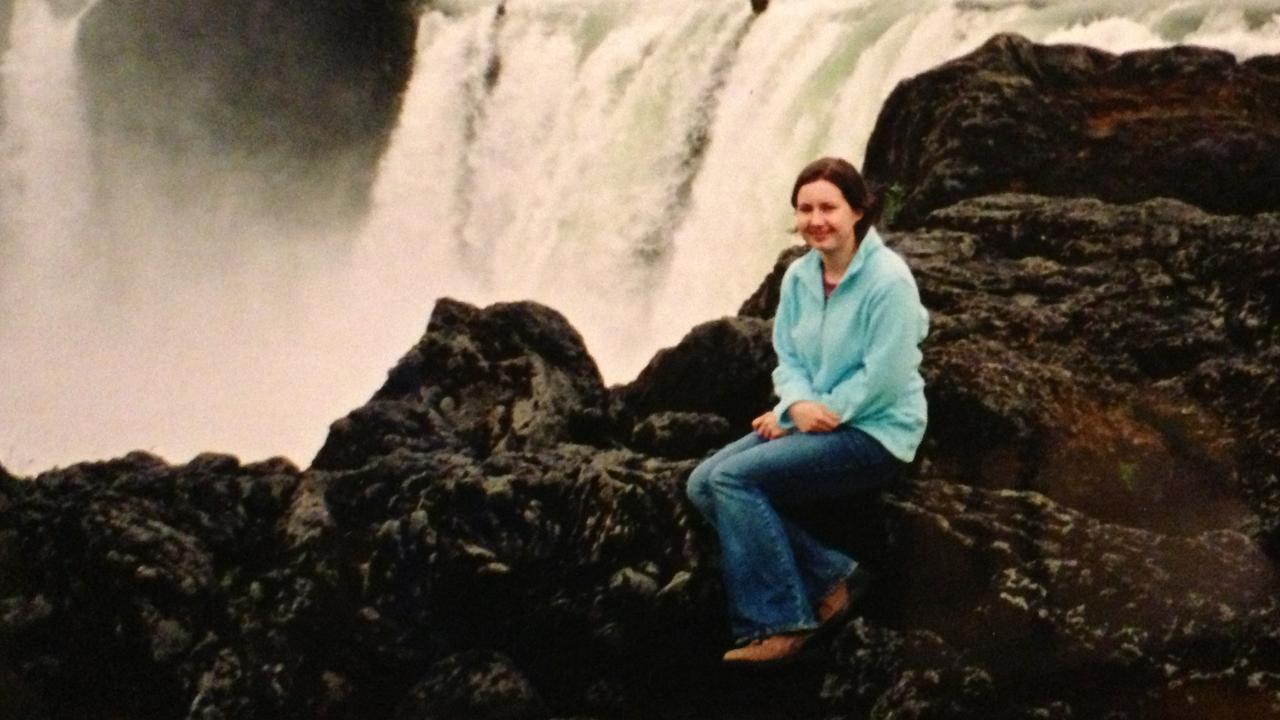Australia’s most legalled play? The Kerry and James Packer story
One of the nation’s best-known media dynasties, the Packers, comes under the microscope in a new play at Sydney’s Belvoir.

‘Kerry dies several times in this play,’’ says Tommy Murphy, pausing strategically before he adds, “and refuses to die.’’ Murphy is talking about his new biographical play, Packer & Sons, and media mogul Kerry Packer’s propensity – initially at least – for cheating death. Packer reportedly suffered several heart attacks and underwent a kidney transplant before he passed away in 2005 while still the country’s richest man.
Says the playwright: “For that last decade Kerry was near death a lot.’’ Packer & Sons is in part, he says, “a story about mortality and health. There is a feeling among the Packer men that their life is short, and that informs how they live their life, how they exploit their power”.
Indeed, Kerry Packer’s close brushes with death are part of national folklore: In 1990, the pugnacious Channel 9 proprietor suffered a near-fatal heart attack while playing polo in Sydney. Clinically dead for seven minutes, he was revived with a defibrillator – and he subsequently footed half the bill for all NSW ambulances to be fitted with the devices, dubbed “Packer whackers’’. He reportedly said of having been clinically dead: “Son, I’ve been to the other side, and let me tell you, there’s nothing there.’’
Packer & Sons opens at Sydney’s Belvoir theatre on Wednesday, and although the dynasty has played a dominant role in Australian magazine publishing, television and gaming for close to a century, Murphy’s biographical play focuses on father-son dynamics rather than corporate power plays. The play is animated by a cast of eight, and revolves around Sir Frank, his sons, Clyde and Kerry, and Kerry’s son, James.
Murphy – who seems as neat and cerebral behind horn-rimmed specs as his subjects are big and blustery – says: “Primarily, this is a story about fathers and sons, so there’s something universal at the heart of it, but told on a gargantuan scale, with the stakes of billions and billions. But not only the money. The stakes are about self-worth, trying to create a legacy and the weight of expectation of four generations that have lived in the public eye and reigned supreme. That’s a big pressure on anyone.
“We know how they (the Packers) exercise their power publicly over government and in business, and the play accounts for that. But the heart of it is how they exercise that power over each other, and the emotional fallout of that.’’
The Packer dynasty has been portrayed in biographies and miniseries including 2011’s Paper Giants: The Birth of Cleo and 2012’s Howzat! Kerry Packer’s War. It’s a high-octane saga of yachts, polo matches and rebel cricketers; failed marriages, models and mistresses; severe fathers, multimillion-dollar casino bets and bruising corporate and political stoushes. According to Murphy, former NSW premier Jack Lang once called the dynasty’s founder, RC Packer, and his son, Sir Frank, “a gang of respectable thieves’’ following a “dodgy’’ newspaper deal cooked up between them.
How do you whittle all that colour, movement and psychodrama down to a two-hour theatre show?
Murphy says he homes in “on the transitions of power from one generation to the next. The rise of Kerry from a son who is regarded as the dolt, who lives in the shadow of a more intellectual and ambitious brother, Clyde. It’s about how Kerry goes from being a kind of playboy, a kind of Prince Hal who becomes the king and Australia’s richest man. And it’s about who that man is as a father, and whether there is a kind of curse that comes with the fortune.”
Murphy’s script arcs across 50 years from the mid-1950s to early 2000s. “That’s the time (the 2000s) when new technology (the digital revolution) came to the family and they had to reinvent themselves, they had to reposition themselves for new eras and there was that transfer of power.’’
By this time, Kerry Packer had had several health scares. Murphy muses that “when Kerry is threatened, when he feels like, not only is he dying but his (media) reign is ending, he becomes a vulnerable figure, and very volatile, and I can only imagine would be a formidable force as a father’’.
For all their wealth and power, the men who drove this four-generation media and gaming empire did not enjoy long lives – RC Packer died in 1934, aged 55. Sir Frank Packer, who launched Australia’s most successful magazine, The Australian Women’s Weekly and started TCN-9, Channel 9’s precursor, lived until he was 67.
When Kerry Packer died, he was 68. Despite being derided as the family “boofhead” when he was young, he had taken the family business to unprecedented heights, having launched World Series Cricket, cemented Channel 9 as the nation’s top-rating network for two decades and developed Crown casinos in Melbourne and Perth.
Murphy, best known for his award-winning film and stage adaptations of Timothy Conigrave’s memoir, Holding the Man, conducted extensive research for this work, including interviews with media and business people who worked “at a very high level’’ with James and Kerry. “A lot of them were high-ranking people in television and in business. They spoke with a lot of admiration (about the Packers) but also spoke about, particularly, Kerry’s bullying.’’
One businessman told him about witnessing “this moment when Kerry was demolishing a very high-ranking executive – demolishing him. It went on for hours and Kerry looked over to this other executive …. and gave a wink, and he was enjoying the performance of it. I think that’s why he’s such an interesting offering for theatre, because he was a performer.”
“We’ve seen moments publicly when Kerry threw his weight around ... The way he speaks with such conviction and entitlement.’’ In 1991, when he appeared “reluctantly’’ before a parliamentary print media inquiry and was asked about his corporate tax minimisation, he turned on his questioners like a grizzly bear menacing startled hikers. “Of course I am minimising my tax,’’ he growled. “And if anybody in this country doesn’t minimise their tax, they want their heads read.’’
Packer & Sons is an all-male production, directed by Belvoir artistic director Eamon Flack. The cast is led by stage and screen stars John Howard, Josh McConville and John Gaden. There’s a lot of doubling, which becomes a dramatic device in its own right: Howard plays Sir Frank Packer and son Kerry, while McConville portrays young Kerry and his son, James.
“It’s a theatrical way of tracing those moments of the transfer of power. There’s a feeling that the heart of Sir Frank keeps on beating in Kerry, the ambitious prince,’’ says the playwright.
It’s easy to see how an imposing, broad-shouldered actor like Howard could replicate the aggressive physicality and air of casual menace that Kerry and Sir Frank could project. Quips Murphy: “Although he’s famous for his SeaChange character, Bob Jelly, I knew he was always destined to play Kerry Packer. John is such a sharp and ferocious figure when he wants to be.’’
As the young Kerry and his more vulnerable son, James, McConville “must tell a story of contrast’’ capturing “the innate qualities that are different between these two men’’. James Packer’s struggles with his mental health, and his withdrawal from the media industry in favour of gaming interests, are not addressed, as the play “takes place long before any of that’’, says Murphy.
What sparked the dramatist’s interest in writing a play about this much-documented dynasty? “I had the impulse (in 2011) when my father was ill,’’ he reveals.
The screenwriter and playwright grew up in a large Catholic family in Queanbeyan – he is one of eight children – and his father provided “the best example of fathering, and that made me just think about what nurturing is, what a parent’s love is. Like most Australians I’m just fascinated with the Packers. They’re such interesting figures and they’ve always interested me as being sizeable enough to … fill a stage.”
Murphy’s last play was the intriguingly titled Mark Colvin’s Kidney. This work was based on an extraordinary true story about Colvin, a highly respected ABC broadcaster, being given a life-saving kidney by a woman he had never met in person – a former interviewee. The play premiered at Belvoir in March 2017 and sadly, Colvin – who had long battled an auto-immune disease he contracted while on assignment in Rwanda – passed away two months later. Packer & Sons was commissioned in January 2018 after Belvoir theatre won the $100,000 David Williamson Prize, which stipulates that a theatre company must not only commission but produce the winning play. “That’s a wonderful thing for a writer,’’ says Murphy. Even before it has opened, the play has struck a chord with the public, with many performances close to selling out. In fact, Murphy says Belvoir “had the biggest day of sales for nine years’’ following a mail-out to its subscribers.
He hopes the work is funny but says it is not a send-up: “We don’t make easy jokes at anybody’s expense. It’s not mean-spirited. It tries to confound an audience’s expectation – we want to show these people in all of their complexity.’’
One insider jokingly called Packer & Sons Australia’s most legalled play, but Murphy says evenly: “The lawyers wanted to check that everything was true. … I believe the play is accurate and truthful and it’s written with a complex sympathy, as well.’’
Rupert and Lachlan Murdoch, executive chair and co-chair of News Corp, publisher of The Australian, feature in the play, says Murphy, as the “rival, brilliant, successful alternative kingdom. Frank Packer is alleged to have said that Rupert Murdoch is the son he never had … There’s a very strong rivalry but also an understanding, so the play touches on moments when they have a truce and a collaboration. It’s interesting that both Packers (Kerry and James) in trying to demonstrate their mettle with their fathers, brokered deals with Rupert Murdoch.’’
Murphy also explores the One.Tel corporate collapse as “a contest between a son (James) and a father (Kerry). It’s a really interesting example of the son presenting a vision for the future that the father doesn’t want to flourish.”
Packer & Sons can be seen as a broader interrogation of “how we nurture men in our society”, says the playwright. “James is reputed to have much of his mother’s grace and sensitivity. I wonder if that was an issue for Kerry, who is trying to mould James to be more like himself. Kerry is the product of a very severe father (Frank).
“Unlike Clyde Packer, who buckled under Frank’s fathering, Kerry emerges with this body armour. And it’s a body armour that he wears when he’s dealing with government or public scrutiny … Packer & Sons is about a very particular patriarchy, and it’s about a story of male entitlement. Men who think they are born to rule and to take from others.’’
Packer & Sons opens on Wednesday at Sydney’s Belvoir theatre.



To join the conversation, please log in. Don't have an account? Register
Join the conversation, you are commenting as Logout